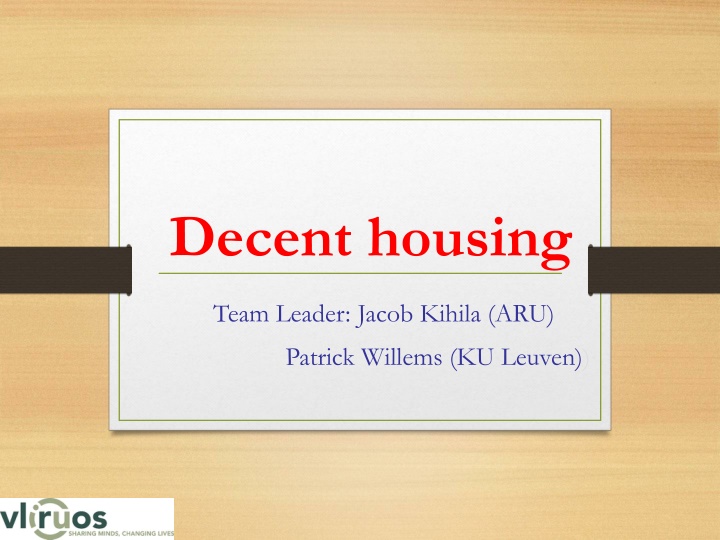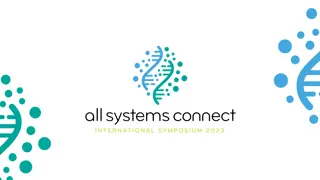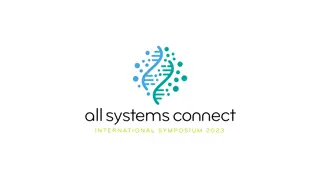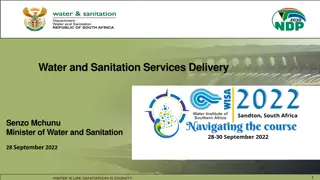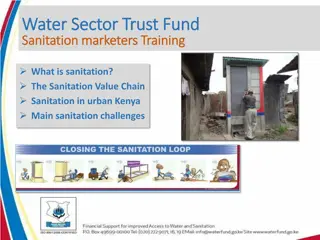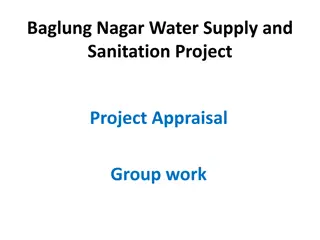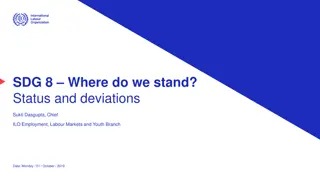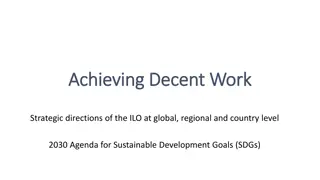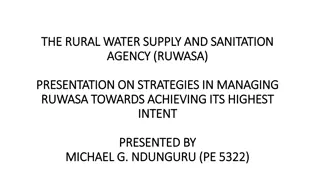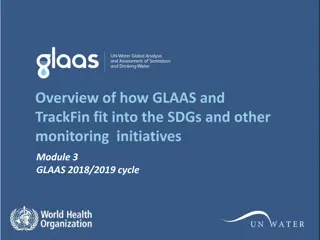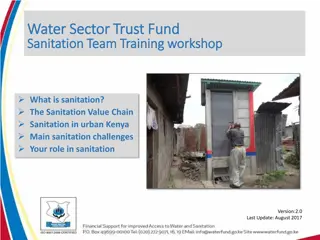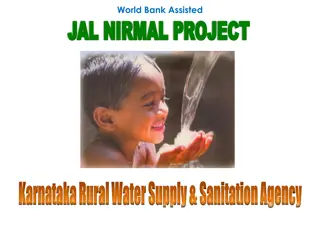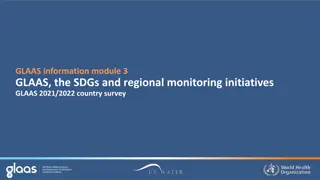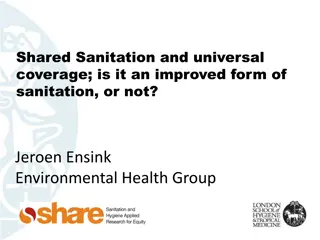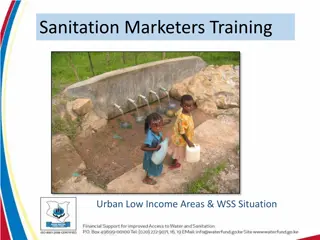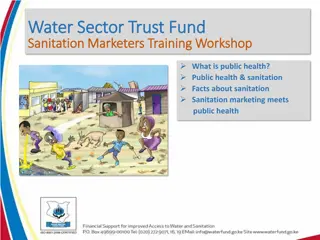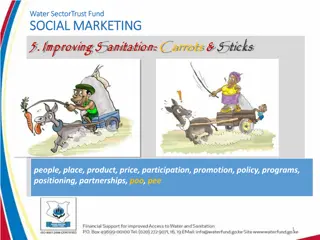Decent Housing Project for Improved Water Supply and Sustainable Sanitation
Towards enhancing urban water supply, sustainable sanitation, and energy use for decent housing, the project led by Jacob Kihila and Patrick Willems aims to address challenges such as solid waste management, water access, and space utilization. With a focus on research and societal engagement, the project targets clean and safe water access, sanitation improvements, renewable energy deployment, and sustainable building material usage. Thematic areas include water, housing, building materials, sanitation, and energy, with initiatives for water quality improvement, resource recovery, and biogas generation. By investigating alternative water sources and optimizing waste utilization, the project seeks to make strides in urban sustainability.
Download Presentation

Please find below an Image/Link to download the presentation.
The content on the website is provided AS IS for your information and personal use only. It may not be sold, licensed, or shared on other websites without obtaining consent from the author.If you encounter any issues during the download, it is possible that the publisher has removed the file from their server.
You are allowed to download the files provided on this website for personal or commercial use, subject to the condition that they are used lawfully. All files are the property of their respective owners.
The content on the website is provided AS IS for your information and personal use only. It may not be sold, licensed, or shared on other websites without obtaining consent from the author.
E N D
Presentation Transcript
Decent housing Team Leader: Jacob Kihila (ARU) Patrick Willems (KU Leuven))
Decent Housing: Towards improved urban water supply and sustainable sanitation resource recovery, energy and materials uses
Context analysis Sanitation 62.75% of improved latrines and only 13% connected to sewerage 22.85% have facilities 30.67% treat their drinking water (NSMIS, 2019) Dar es Salaam tonnes of solid waste per day. Out of these, 37% (1,533 tonnes) is collected and less than 200 tonnes per day are recycled Energy access still a challenge Demand for sustainable materials is increasing with urbanization households are using Water deman d hand washing Adequat e supply of water Sludge managem ent Challenges Empty ing cost generates 4,161 Demand for space Inadequate designated disposal site for wastewater treatment
Project objectives To contribute towards improved urban water supply and sustainable sanitation resource recovery, energy and materials uses for decent housing. This will be achieved through research, training and societal engagement in issues related to; i. access to clean and safe water ii. improved sanitation and enhanced resources recovery from solid wastes and wastewater iii. deployment of off-grid/mini-grid electrification through renewable energy and iv. use of potential sustainable building materials.
Project thematic areas Water Decent housing Building materials Sanitation SDGs Energy
Access to clean and safe water Techniques for harvesting, conservation strategies and water quality improvement options will be investigated under this area. Investigation of alternative water sources and quality surveys, exploration of the potential and techniques for rain water harvesting will be carried-out
Improved sanitation and enhanced resources recovery The project will undertake mapping of different types of wastes that have potential for resource recovery Laboratory and pilot scale experiments on optimal generation of sanitation products using various waste- feacal sludge mixes for optimal biogas generation, briquettes and fertilizer Techno-economic evaluations (with artificial intelligence) and development of strategies for the scale up
Electrification through renewable energy Exploration of the potential renewable energies, testing the technologies via mini grid approach. Investigation on applications such as solar energy (photovoltaics and solar heating), windmills and biogas production will be done. Options/ways to integrate renewable energy systems with water, sanitation will be sought. Strategies for scale up of the technologies and for building the capacity of communities on renewable energy will be investigate
Sustainable building materials An inventory of existing material flows will be made in order to critically reflect on the environmental impact and to detect potential improvements or alternatives for lower impact construction Research on alternative building materials such as from waste
Medium-term Impacts Medium-term: Water sources and quality databases created, Cost effective technologies developed, Sanitation business models developed, Sanitation useful products developed, General design principles, recommendations for more sustainable material use and specific sustainable building solutions developed. The expected outcome is the uptake of the sustainable energy, water and resource recovery and building material technologies. guidelines and
Long-term impacts Improved livelihoods and wellbeing; Enhanced sustainable resource use Availability of evidence based information for decision making on resource recovery, water quality and green infrastructure, sustainable energy systems and sustainable material use by policy makers; Strengthen ARU s institutional network Capacity building (PhD, MSc, Tailor made trainings, short courses) Dissemination (articles, policy briefs ) Community outreach technology transfer public health; Improved community
Thank you for your Thank you for your attention attention
